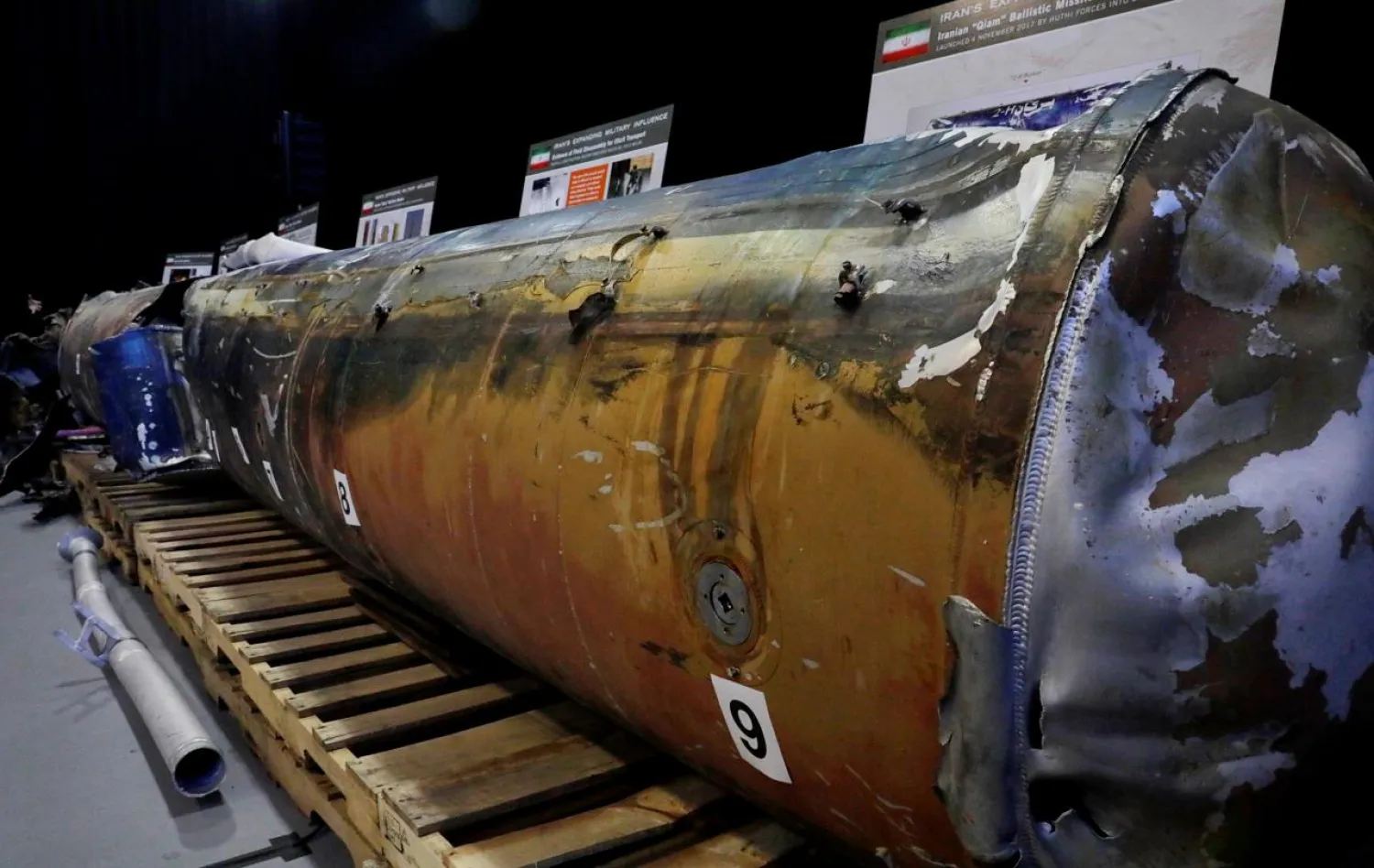United States Ambassador to the United Nations Nikki Haley presented on Thursday the debris of a missile at a military base in Washington which she said was made by Iran and fired at King Khalid International Airport on November 4 by Houthis.
Haley's claims prompted Iranian official responses namely from Defense Minister Amir Hatami who said on Monday that Iran should be given a piece of the missile to do its own investigation.
“Enemies of the Islamic Republic can claim many things, but following Iran’s complaint, a debris of the missile should be given to Iran to examine it and announce its final analysis about it,” Hatami said.
Iran's Foreign Minister Mohammed Javad Zarif also announced his country lodged a complaint with the UN protesting Haley's press conference in which she presented "irrefutable evidence" that Tehran sent weapons to Houthis in Yemen.
Zarif called the missile show “a piece of metal” and said the accusations by Haley were “unfounded”.
"Rajanews" website claimed that the missile was Iranian but launched in Deir Ez-Zour in June in response to ISIS' attacks in Tehran. It was unclear whether Iran's foreign and defense ministries had lodged a single complaint with the UN or two.
The Iranian defense ministry’s technical department is looking into Haley’s claim and her recent missile show at the UN, Hatami said on Monday.
On Thursday, Haley held a news conference at a military hangar at Joint Base Anacostia-Bolling, just outside Washington, and uncovered the remains of the missile.
The new Trump administration step comes two months after announcing a strategy to counter Iran's destabilizing activities, mainly the role of the Quds Force, foreign arm of Iran's Revolutionary Guard Corps (IRGC), and the development of ballistic missiles.
At the time, Trump refused to ratify Iran's commitment to the nuclear deal and gave the US Congress 60 days to declare its position on the reimposing nuclear sanctions, but the period ended without any clear decision.
US sources said last week that Trump might announce US withdrawal from the nuclear deal with Iran next month.
Hatami told semi-official Tasnim news agency on Monday that US claims cannot be answered remotely.
"One cannot respond to this allegation without an inspection and from afar; therefore, the Islamic Republic's complaint will soon be prepared and forwarded to the UN," he said.
On March 24, 2017, the Security Council passed Resolution 1747 with the approval of all its members, which includes sanctions on Iranian companies producing missiles, and prohibits the decision to export or import heavy weapons to and from Iran. It forbade Iran from providing any arms to anyone, anywhere and called on all nations to refrain from exporting any major arms to Iran.
Last week, reports circulated stating that UN experts had prepared a report proving Houthis fired an Iranian-made ballistic missile.
Haley's press conference came after the commander of IRGC Mohammed Ali Jafari officially announced that Iran provides "advisory" support to Houthis.
For six years, Iran has been describing its military presence in Iraq and Syria as "consultant".
In a series of tweets, Zarif tried to downplay the significance of US ambassador's remarks, but the announcement of the defense minister reflects serious concern in Tehran of international action against Iranian activities.
This is not the first time Iran is accused of sending weapons to Houthis. In January 2013, the US military announced that it intercepted an Iranian ship sent to Houthis and loaded with 40 tons of anti-tank weapons.
On February 24, 2015, former US Secretary of State John Kerry accused Iran of supporting Houthis in overthrowing the Yemeni government.
During the same period, it was reported that "Unit 190" of al-Quds Force was responsible for transferring weapons to pro-Iranian groups in five Arab countries: Palestine, Lebanon, Syria, Iraq and Yemen.
In a report, Fox News mentioned that the unit was moving weapons through the sea, land and air to Tehran's allies. Iran's defense minister did not comment on the charges against al-Quds' activities in the region.
In addition to "Unit 190", "Unit 400" of al-Quds is responsible for the execution of military and intelligence operations outside the Iranian border.
In March 2015, Reuters quoted US officials as saying that information revealing IRGC's role is still limited in Yemen, but the corps are training Houthis in Yemen.
In the same report, Reuters quoted a US official who confirmed that the role of IRGC in Yemen is "rising."
The report also quoted US sources as saying that the Revolutionary Guard transferred military weapons to Houthis in Yemen.









